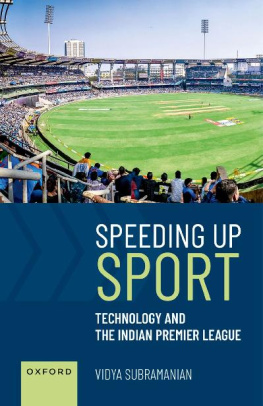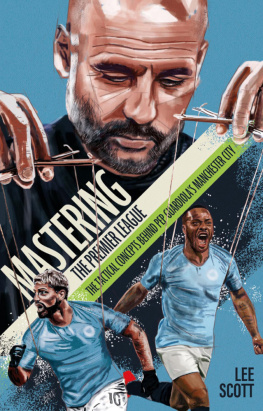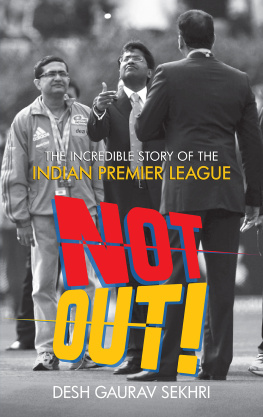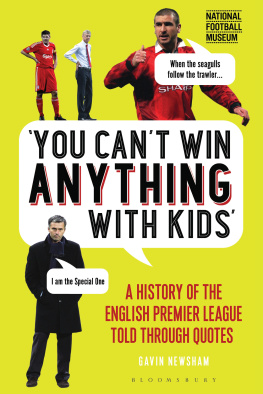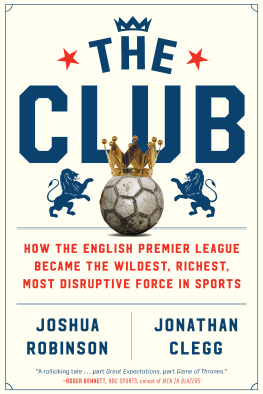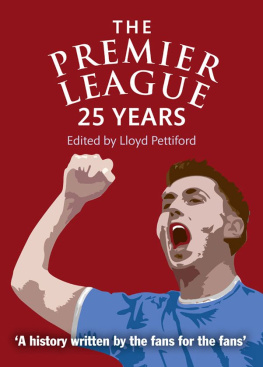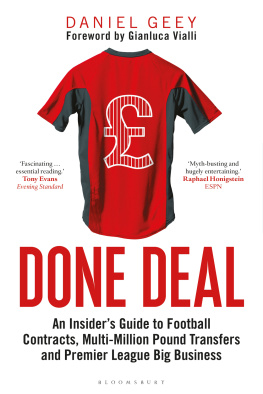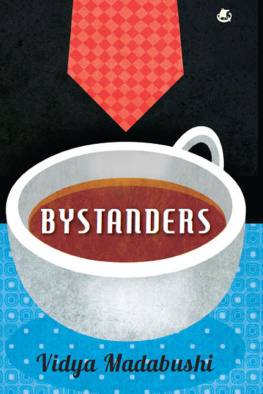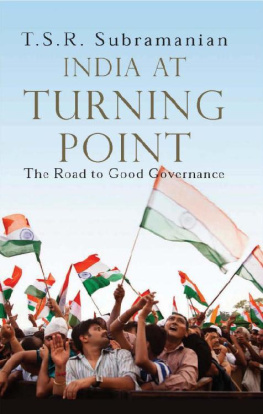Vidya Subramanian - Speeding up Sport: Technology and the Indian Premier League
Here you can read online Vidya Subramanian - Speeding up Sport: Technology and the Indian Premier League full text of the book (entire story) in english for free. Download pdf and epub, get meaning, cover and reviews about this ebook. year: 2022, publisher: Oxford University Press, genre: Politics. Description of the work, (preface) as well as reviews are available. Best literature library LitArk.com created for fans of good reading and offers a wide selection of genres:
Romance novel
Science fiction
Adventure
Detective
Science
History
Home and family
Prose
Art
Politics
Computer
Non-fiction
Religion
Business
Children
Humor
Choose a favorite category and find really read worthwhile books. Enjoy immersion in the world of imagination, feel the emotions of the characters or learn something new for yourself, make an fascinating discovery.
- Book:Speeding up Sport: Technology and the Indian Premier League
- Author:
- Publisher:Oxford University Press
- Genre:
- Year:2022
- Rating:4 / 5
- Favourites:Add to favourites
- Your mark:
- 80
- 1
- 2
- 3
- 4
- 5
Speeding up Sport: Technology and the Indian Premier League: summary, description and annotation
We offer to read an annotation, description, summary or preface (depends on what the author of the book "Speeding up Sport: Technology and the Indian Premier League" wrote himself). If you haven't found the necessary information about the book — write in the comments, we will try to find it.
Speeding up Sport: Technology and the Indian Premier League — read online for free the complete book (whole text) full work
Below is the text of the book, divided by pages. System saving the place of the last page read, allows you to conveniently read the book "Speeding up Sport: Technology and the Indian Premier League" online for free, without having to search again every time where you left off. Put a bookmark, and you can go to the page where you finished reading at any time.
Font size:
Interval:
Bookmark:
VIDYA SUBRAMANIAN


Great Clarendon Street, Oxford, ox2 6dp,
United Kingdom
Oxford University Press is a department of the University of Oxford. It furthers the Universitys objective of excellence in research, scholarship, and education by publishing worldwide. Oxford is a registered trade mark of Oxford University Press in the UK and in certain other countries
Oxford University Press 2022
The moral rights of the author have been asserted
First Edition published in 2022
Impression: 1
All rights reserved. No part of this publication may be reproduced, stored in a retrieval system, or transmitted, in any form or by any means, without the prior permission in writing of Oxford University Press, or as expressly permitted by law, by licence or under terms agreed with the appropriate reprographics rights organization. Enquiries concerning reproduction outside the scope of the above should be sent to the Rights Department, Oxford University Press, at the address above
You must not circulate this work in any other form and you must impose this same condition on any acquirer
Published in the United States of America by Oxford University Press
198 Madison Avenue, New York, NY 10016, United States of America
British Library Cataloguing in Publication Data
Data available
Library of Congress Control Number: 2022945790
ISBN 9780192865120
eISBN 9780192688620
DOI: 10.1093/oso/9780192865120.001.0001
Links to third party websites are provided by Oxford in good faith and for information only. Oxford disclaims any responsibility for the materials contained in any third party website referenced in this work.
This book is the culmination of a long journey through an MPhil and PhD process (and beyond) and has been the most amazing thing Ive done (so far) in my life. After having meandered through a few jobs, when I started my academic journey, I had not intended it to take me into an analysis of a sport I grew up watching and loving; far less to have written a book about it. Im thrilled that I have been able to do this!
And there is no wayin any version of this universewhere I could have done this without the support and help of several people.
The first of the many people who deserve my heartfelt gratitude are my two supervisors at JNUProf. Rohan DSouza and Prof. Madhav Govind.
Prof. Rohan DSouza has been, over the years, a supervisor, a provocateur, a truth teller, a morale booster, an editor, and rewriter of several drafts of several papers, abstracts, and chapters. He is also the person who sowed the seeds of the idea that grew into this project. This book, the PhD thesis, the idea does not exist without you. Thank you, Rohan, for everything.
My deepest gratitude to Prof. Madhav Govind for taking the risk and trusting me to finish what was begun together in 2009 as my MPhil.
A debt of gratitude is also owed to my parents, who supported me through the (extremely ill-paid) PhD process and throughout my life. I know I dont always sound like I do, but I am so very grateful for your vast patience and for having been so accommodating to (almost) all of my whims, fancies, general insanity, and (some very questionable) career choices.
There is no way to describe how thankful I am to my sister Bhuvaneshwari (who will always be Choti) for being there for me, and for keeping it together every time I was losing it all over the place. Thank you for reading my drafts as many times as I have written them, and for knowing this book almost better than I do. I hope to be able to return at least half of those favours some day.
I am very grateful to the professors (Prof. Pranav Desai, Prof. V.V. Krishna, Prof. Saradindu Bhaduri, Prof. Madhav Govind, Prof. Rohan DSouza) and all the scholars and staff at the Centre for Studies in Science Policy (CSSP), JNU for their support and for always keeping me on my intellectual toes. Thanks are also owed to Prof. Shishir Jha and Prof. Satish Agnihotri at the Centre for Policy Studies (CPS), IIT Bombay for giving me the spacephysical, intellectual, financialto work on this manuscript as a postdoctoral fellow.
A sincere Thank You also to Prof. Mahesh Rangarajan, Prof. Ramachandra Guha, Prof. Shiv Viswanathan, Prof. Prashant Kidambi, and Prof. Aniket Alam for their support over the years, for long and useful conversations, important methodological advice, writing recommendation letters, reading drafts, giving valuable feedback, and for caring about this work. A special thank you to Prof. Ramachandra Guha also for giving this book its name.
I owe another big Thank You to Mr Rajaraman Ganesan, Mrs Rwitticka Kalita, Mr Pravin Amre, Ms Sonam Bajaj, Dr Nalin Mehta, Mr Shane McPherson, and Mr Vikas Chand for all their help during field work.
A very special Thank You to Mr Gideon Haigh, Mr Bishan Singh Bedi, Mr Murali Kartik, Ms Sharda Ugra, Mr Azhar Habib, Mr Hemant Buch, and Mr S. Ramakrishnan for being the most remarkable people that anyone could interview when it comes to cricket.
I could not have survived the PhD and what followed without the support of my colleagues and friends who have fed and watered me (and consequently the thesis) and held me together at so many moments when I could have completely fallen apart. Thank you, Neeladri C, Poonam Pandey, Anshu Ogra, Aarthi Sridhar, Monish Khetrimayum, Marine Al Dahdah, Mathieu Quet, Varun-Vaibhav-Mallika Joshi (and gang!).
A final acknowledgement to the institution of JNU where I spent the years between 2009 and 2016 working on this project, eating at the dhabas , marvelling at the nilgai, and learning to be a scholar. JNU has given me (and so many others) the space and opportunity to be able to push the boundaries of academic thought, to understand what it means to be human in this world, to be self-reflexive enough to receive criticism without rancour, and to engage with opposing views without being threatened by them. For that and so much more, thank you.
This book is a product of my doctoral research conducted between 2011 and 2016, aimed at initiating a conversation between insights from the field of Science, Technology, and Society (STS) and the sociology and history of cricket in India. The main theme, in its specific thrust, is to explore how information and communication technologies (ICTs) have shaped and determined cricket and the Indian Premier League (IPL) in several ways.
The IPL was set up in 2007 by Lalit Modi as an immediate response to Zee Entertainment Enterprises Indian Cricket League that was seeking to corner what was perceived as a large market for audiences that wanted to see entertainment collapse into cricket. When I submitted my doctoral thesis in 2016, the IPL was eight seasons old, and had had the participation of thirteen teams (including two new teams for the 2016 edition), crowned five winners, awarded several million dollars worth of prize money, and attracted a fair share of controversy and scandal.
My contention is that the IPL in both scale and scope was primarily developed as Indias first sporting platform rather than a cricket tournament. And critical to the assembling of the IPLas a profound and unprecedented rupture in format and designI suggest, has been the roles, influences, and potentialities created by a range of ICTs. By a sporting platform, I assert that the IPL is more akin to being run in function and form as an assemblage of sorts; there has been a complicated crowding onto a single platform of otherwise disparate interests, elements, and calculations such as big businesses, Bollywood, military technologies, cricket, high finance, politics, television, social media, popular entertainment, advertising, and perhaps unsurprisingly, the ability to profit from scandal.
Font size:
Interval:
Bookmark:
Similar books «Speeding up Sport: Technology and the Indian Premier League»
Look at similar books to Speeding up Sport: Technology and the Indian Premier League. We have selected literature similar in name and meaning in the hope of providing readers with more options to find new, interesting, not yet read works.
Discussion, reviews of the book Speeding up Sport: Technology and the Indian Premier League and just readers' own opinions. Leave your comments, write what you think about the work, its meaning or the main characters. Specify what exactly you liked and what you didn't like, and why you think so.

